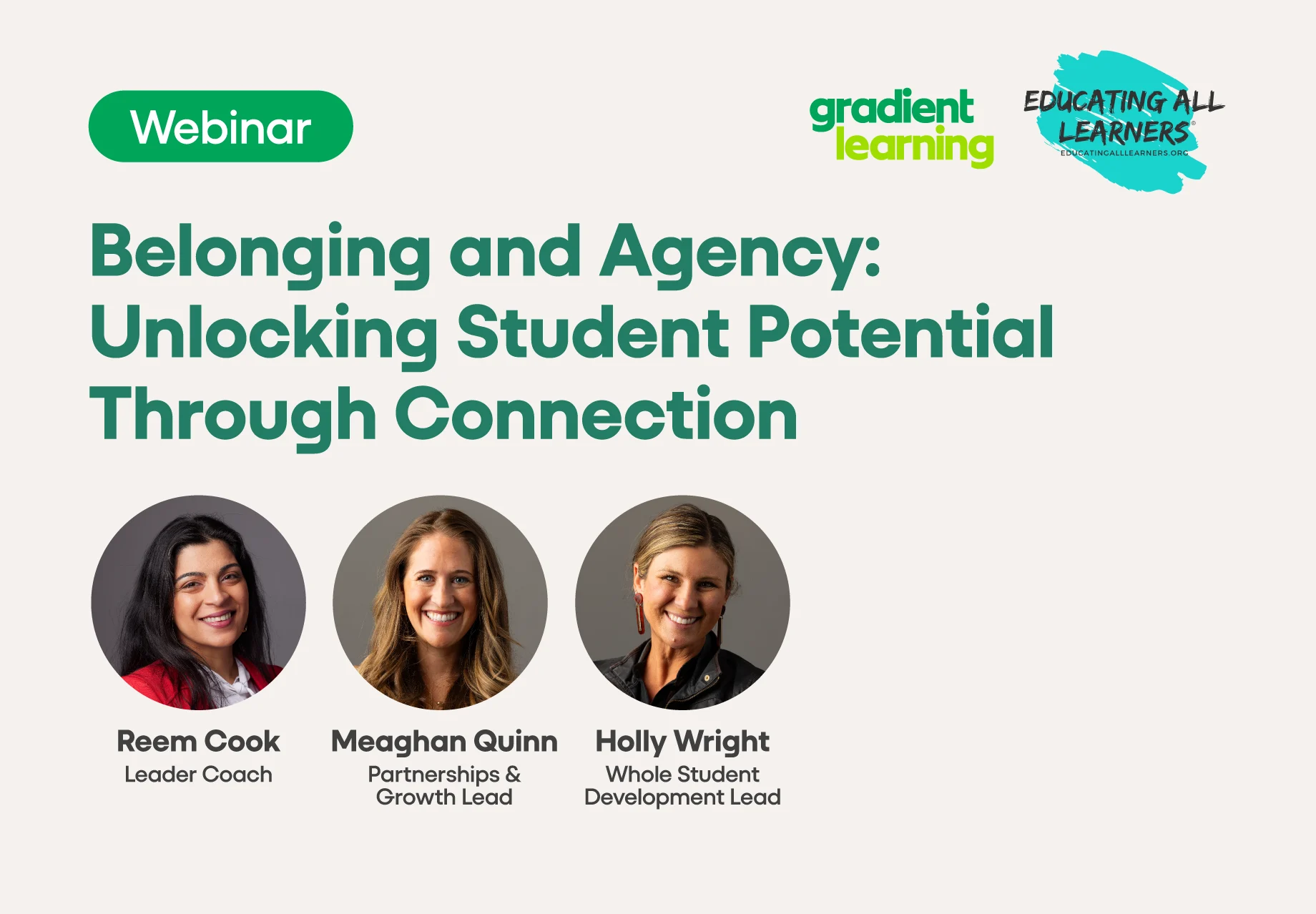
How does a sense of belonging and agency drive student success?
We often observe that when students feel a sense of ownership in the classroom, their engagement soars.
This powerful link between student voice and academic success was the core focus of a recent webinar hosted by Educating All Learners Alliance (EALA) and Gradient Learning. Experts from both organizations established that student agency and connection is non-negotiable for success.
“Belonging isn't just this nice-to-have feeling,” said Meaghan Quinn, a Partnerships and Growth Lead at Gradient. “It truly is the foundation of agency and academic growth,”
By securing that foundational connection, Quinn said schools can move beyond basic compliance and achieve truly holistic student outcomes.
Agency, the ability for students to make choices and take action, is the engine that drives students to become curious, self-directed, and full of purpose as they go into the world. This approach meets students where they are by giving them a real voice in their own education.
Holly Wright, a Whole Student Development Lead at Gradient, looks for “mutual interaction” between teachers and students when she visits classrooms.
“In an environment that promotes agency and belonging, we see students who don’t think that the teacher is the expert and they’re there just to be the recipient,” Wright said. “There is this mutual interaction going on. We’re all here to both learn and teach together. And that has a really powerful impact on the learning experience, for both the teacher and the students.”
Reem Cook, a Leader Coach at Gradient, said when students' thoughts and feedback are genuinely valued, their motivation soars. Cook spoke about a student who went from being “disengaged” to an active participant in the class because he felt he was being heard.
“He was contributing to something real and something the group valued, and you could see the confidence grow every day,” Cook said. “When I asked him why he changed, he said, ‘They listened to my idea.’ And so that feeling of value was definitely there. It happened naturally by having a solid culture in the classroom that brought about his voice.”
To create this culture, Cook pointed out the necessity of school leaders having a strong vision.
"Leaders have to make it clear that things like belonging and agency aren’t add-ons,” Cook said.
Gradient Learning works to turn those holistic ideals into practical practices by providing high-quality instructional materials that integrate both academics with durable life skills. When a school implements this kind of approach, the whole culture shifts.
“When you go into a building where students feel like they belong and they have agency, there’s a buzz,” Wright said. “They’re there to drive their own learning, and their voice matters. They’re asking questions, they’re thinking critically. They feel empowered to take ownership of the learning space.”
Cook noted that this positive change in the students "is not magic.”
“It's because the teacher has instilled it in them, and because the teacher and the leaders feel that way, too,” Cook said. “Schools become a place of partnership. There’s reflection, innovation, and you can feel the joy increase in a campus.”


